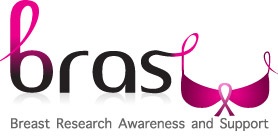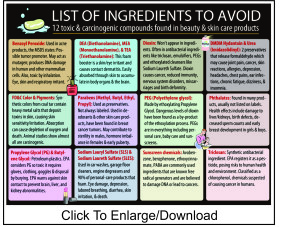The Lymph System and Your Breast Health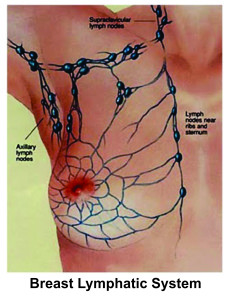
An Educational Series by Breast Research Awareness and Support
The goal of this article is to help you understand why BRAS considers breast exercises and massage so vitally important.
Founder Linda Bamber was motivated by compassion for her family members when they were diagnosed with breast cancer. She was determined to restore her relatives’ health and to preserve her own. She was led to learn and share simple breast exercises which involve the lymph system, assembled over 300 pages of research, then eventually realized the birth of her business. Read More
To build a good foundation, Part 1 contains a general description about the function and importance of the lymph system to your health. The lymph system includes a ‘highway’ of tubes with fluid which produces antibodies, and the spleen, which filters out what should not be in your body. It is this ‘highway’ that is the transport system for your immune system – without a healthy lymph system, your immune system cannot do it’s job for your health.
Hopefully this simplified description of the lymph system will be helpful. It is a complex system, but even a basic understanding of it’s function may motivate you to dry brush, rebound or walk, and do your breast massage/exercises! (Click illustrations to enlarge.)
Part 1: What is the Lymph System? Why is it vital to your health?
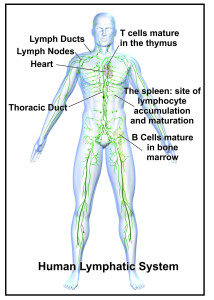 The lymph (or lymphatic) system is part of your body’s circulatory system. It is the vital ‘highway’ of the immune system, comprising a network of lymphatic vessels that carry a clear fluid called lymph (from Latin, lympha meaning water) directionally towards the heart, and filters out harmful attackers to your health. The lymph system is the body’s drainage system. As well as the lymphatic vessels, this system is composed of a small structures called lymph nodes.
The lymph (or lymphatic) system is part of your body’s circulatory system. It is the vital ‘highway’ of the immune system, comprising a network of lymphatic vessels that carry a clear fluid called lymph (from Latin, lympha meaning water) directionally towards the heart, and filters out harmful attackers to your health. The lymph system is the body’s drainage system. As well as the lymphatic vessels, this system is composed of a small structures called lymph nodes.
The lymph vessels convey excess fluid collected from all over the body back into the blood circulation. Along the way, however, these fluids are forced to percolate through the lymph nodes so that they can be filtered. Harmful organisms are trapped and destroyed by the specialized white blood cells, called lymphocytes, that are present in these nodes. Lymphocytes are also added to the lymph that flows out of nodes and back to the bloodstream.
Unlike the cardiovascular system, the lymphatic system is not a closed system. The human circulatory system processes an average of 20 liters of blood per day through capillary filtration, which removes plasma while leaving the blood cells. Roughly 17 litres of the filtered plasma are reabsorbed directly into the blood vessels, while the remaining three litres remain in the interstitial fluid. The lymph system has a primary function to provide an accessory return route to the blood for those surplus three litres.
With one more analogy to unscore the importance of this system: it is considered by some to be a sewage system for cellular metabolic toxins. There is more lymph in your body than blood, but there is no pump for lymph. That is why it is important to learn about the lymph system, and assist it by exercise to to its job. In subsequent parts of this article we will focus on breast health; for now here are ways you can get started today to rejuvenate your lymphatic system. Read More …
Antibodies
The lymphatic system is the “life” of the immune system. Antibodies are manufactured by the lymph system. Antibodies are specialized proteins that the body produces in response to invasion by a foreign substance. The process of antibody formation begins when an antigen stimulates specialized lymphocytes, called B cells, into action. Antibodies then counteract invading antigens by combining with the antigen to render it harmless to the body.
Some antibodies coat the harmful organisms so that the body’s scavenger cells can recognize and destroy them more easily. The antibody molecule combines with the antigen molecule by matching combining sites; they fit together like the pieces of a jigsaw puzzle. Other antibodies that neutralize toxins produced by bacteria are called antitoxins. These are ‘marked’ for collection, ‘quarantine’ and finally ‘deletion’ from the body by means of the blood and most importantly, the lymph system.
During invasion of harmful bacteria or other foreign bodies, antibody production is activated. Because of the work of filtering, lymph nodes often enlarge and become tender to the touch. For example, a vaccination (injection of a natural or artificial antigen to stimulate the body to produce protective antibodies) in the arm can cause swelling of the nodes in the armpit, while mononucleosis causes enlargement of nodes that can be felt under the skin of the armpits, groin, and neck. The spleen (an organ located in the upper left part of the abdomen) is also important in the production of antibodies.
Spleen
The spleen is an organ similar in structure to a large lymph node, it acts primarily as a blood filter. Here’s a rough analogy of this organ’s purpose: the lymph system is like one of the body’s waste collection crews, and the spleen is roughly similar to the recycling center, separating and storing what the body can use, and eliminating what the immune system has identified and ‘quarantined’ as dangerous invaders. In technical terms, the spleen is a center of activity of the mononuclear phagocyte system. Its absence causes a predisposition to certain infections. Read More . . .
The spleen plays important roles in regard to red blood cells and the immune system. It removes old red blood cells and holds a reserve of blood, which can be valuable in case of hemorrhagic shock, and also recycles iron.
The spleen synthesizes antibodies in its white pulp and removes antibody-coated bacteria and antibody-coated blood cells by way of blood and lymph node circulation.
A study published in 2009 using mice found that the spleen contains, in its reserve, half of the body’s monocytes (a type of white blood cell) within the red pulp. These monocytes, upon moving to injured tissue (such as the heart), turn into dendritic cells and macrophages while promoting tissue healing.
When you detect that your lymph system is clogged, it is vital that you take steps to restore its flow. Read more . . .
(Excerpts from “Wikipedia” and “How Stuff Works:HEALTH” )
Part 2: A Deeper Look at the Lymph System:
Amazing Facts, Complications, Disorders and … Tattoos!
As we learned in Part 1 of this series, there is a many vital roles the Lymph System plays in our health and well being. We now take a deeper look at this amazing system and what happens if it is disregarded from our preventative self-care.
Founder Linda Bamber approached her awareness from this angle, as she dealt with the medical complications in the lives of her relatives. Through study, Linda became more aware than ever of the obvious importance of the Lymph System.
Here are some eye-opening facts:
1) Placed end to end in a straight line, all the lymph vessels in the body would cover a distance in excess of 100,000 miles –
circling the globe four times.
2) There is 3 times as much lymph fluid in our bodies as there is blood. Unlike the circulatory system has the heart,
the lymph has no pump to keep it moving.
3) If the movement of the lymph were stopped completely,
a person would die within hours. Read More >
4) Complications and disorders of the Lymph System are
the source of many chronic and fatal diseases, including cancer. Read More >
5) The Lymph System plays a definite role in
the presence of cellulite, that ‘cottage cheese like’ dimpling, which is the bain of many women. Read More >
How have we been oblivious to the obvious?! We need more education about the amazing Lymph System and how to give it preventative care for good health all the days of our lives.
The Lymph Nodes
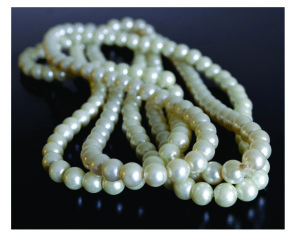 The Lymph System can be considered a very long string of pearls. Millions upon millions of nodes – some no bigger than a pinhead, others the size of a lima bean – guard the body against the intrusion of destructive substances.
The Lymph System can be considered a very long string of pearls. Millions upon millions of nodes – some no bigger than a pinhead, others the size of a lima bean – guard the body against the intrusion of destructive substances.
You can actually feel some lymph nodes – on the sides of your neck, under your chin, under your arms, and where your legs meet your torso. It is actually a good sign when they are slightly swollen and tender. It means your lymph system is doing its job to collect toxins and harmful bacteria. As fluid moves through each of the nodes, your body has another opportunity to detoxify and kill pathogens.
How does lymph flow?
Most simply, the Lymph System depends on the effects smooth muscle contraction along the bones and gravity’s pull through body movement. In addition, there are little ‘backflow valves’ to preserve the lymph fluid’s forward motion.
Toxic Burden
The lymph nodes filter billions of cells that die off and form highly toxic substances in the process. Toxins are built up from the residue of the approximately 70 tons of food that we eat in a lifetime. There are pollutants and irritants in the environment, in cleaning products and cosmetics, and in all the other things we put in, on and around our bodies.
An article posted late in 2013 reads: “Modest estimates have suggested that we are exposed to more than 700,000 different toxic chemicals on a daily basis, and this doesn’t include the crazy poisons that GMO companies are pumping into the food supply. According to Global Healing Center, it isn’t abnormal to be exposed to 2,100,000 toxins each and every day.” Further, Dr. Mercola cites that, “Women put and average of 168 different chemicals per day on their bodies that are absorbed by the skin.”
The burden of filtration of all these from the body falls primarily on the lymph system.
The risk of toxic overload to the lymph system in the Western world is growing to critical proportions! The best way to lighten the Lymph System’s load is to avoid as many toxins as possible. This will be covered later in the series.
Complications
In our modern society, there are at least two areas of major conflict for the Lymph System:
- Lack of Body Movement – The industrial revolution and the information age have led to an increasingly sedentary lifestyle, much different than the life of our forefathers. Because the Lymph System depends on the body’s movement to flow correctly, we must address this conflict of lack of movement with preventative self-care before complications arise.
- Toxic Burden – When the level of waste in the body builds at a greater pace than it is eliminated, the lymph nodes are overburdened and they enlarge. When they cannot keep up, the body’s other functions begin to suffer. As overburdened lymph nodes swell and fill to capacity, the waste moves on to the next available nodes. Frequently, when swollen lymph nodes are identified, they are surgically removed, especially if cancerous cells are detected in them. But removing the nodes is not removing the problem. The problem is the ever-increasing level of toxic waste, not the nodes that are trying to contain it. Medical experts are regularly baffled, mystified, dumbfounded by the obvious results of ignoring it – the rise in cancer, the onset and proliferation of various conditions and diseases. They say, “We don’t know,” “No one knows,” “The cause is unknown.” That’s because they are trying to find the specific causes for each and every one of the thousands of different possible ailments of the human body, when in actual fact there is only one: toxemia, otherwise known as a toxified system. Read more >
Disorders of the Lymph System:
The Lymph System may not carry out its function adequately due to:
Blockage (obstruction): Obstructions lead to an accumulation of fluid called lymphedemia, which occurs when the lymph drainage system is impaired. The build up of lymph fluid within a given area exceeds the capacity of the transport system to remove it. Considering the complications discussed above, many people do not have the healthy flow of lymph. Here is comprehensive website on lymph blockage and associated disorders: Lymph Notes
Infection: Infection may cause swollen lymph nodes to become inflamed. Sometimes the lymph nodes themselves may become infected (lymphadenitis) by organisms that spread through the Lymphatic System from the original site of infection.
Cancer: Tumors may block the lymphatic ducts or may travel (metastasize) to lymph nodes near a tumor, interfering with flow of lymphatic fluid through the node. In other cases, a tumor may develop in the lymphatic system. Here is more about the types of Lymph System related cancers called Lymphoma.
Considering a Tattoo?
 ‘Tats’ are very popular these days. About one in five US adults, or 21 percent, has at least one tattoo. This is up from 14 percent in 2008, according to a Harris poll. [1] Yet, do the would-be bearers of these life-long inscriptions consider the down side of this up-trend? Those colorful inks include phthalates (hormone disrupters that you worry about in plastics), as well as carcinogenic metals and hydrocarbons. [2]
‘Tats’ are very popular these days. About one in five US adults, or 21 percent, has at least one tattoo. This is up from 14 percent in 2008, according to a Harris poll. [1] Yet, do the would-be bearers of these life-long inscriptions consider the down side of this up-trend? Those colorful inks include phthalates (hormone disrupters that you worry about in plastics), as well as carcinogenic metals and hydrocarbons. [2]
Tattooing adds stress on the Lymph System in a number of ways because the dye goes into the lymph nodes and stays there. When considering the above mentioned disorders of the Lymph System – blockage, infection, and cancer – the application of permanent tattoos place a person at risk of all three.
Here is a clinical study of tattoo pigment in an axillary lymph node simulating metastatic malignant melanoma.
Read an associated story of a 32 year old woman who endured cervical cancer diagnosis and radical surgery, only to find out after the fact that the doctors misread the presence of tattoo ink, not cancer, in her lymph nodes. Read More>
[2] Tattoo ink contains known toxins: Drs. Oz and Roizen
The Lymph System and Your Breast Health
Part 3: 16 Ways to Support a Healthy Lymphatic System
In review –
Part 1: How the Lymphatic (or Lymph) System works – why it is the golden key to your health;
Part 2: The increasing environmental and societal threats that cause complications and 3 types of disorders in this system
Because of the collection of lymph nodes in the breast/underarm area, these tips are considered essential for your personal breast health care. In Part 3, we share 16 ways to care for your Lymphatic System as it guards you from disease, and clears your body of metabolic waste and environmental toxins. [1]
Not sure if your Lymph System needs some attention? Click here to take a quiz.
Essential Lymph health care tips
- Exercise and Movement The Lymph System has no pump, but relies on the effect of gravity through movement, and smooth muscle contraction for it to flow. Walking, stretching, deep breathing, and gentle bouncing are simple ways to keep your lymph moving. One couple sets a timer and does the “health bounce” – just 10-20 bounces each hour during the day.
- When walking, swing your arms as you walk to drain axillary (underarm) nodes; a moderate pace helps to empty the inguinal nodes between the legs. (Breast Research Awareness and Support recommends that you consult your health care professional before starting any exercise regimen.
- Pure water – and lots of it! A simple rule of thumb: Divide your current weight by 2 – drink that many ounces of fresh water each day. ( example 150 lbs. divided by 2 = 75 oz. or @ 2.5 quarts (divide your result by 32 for number of quarts)
- The Order of Cleansing When embarking on a detox regimen, remember the proper order of system cleansing: colon, kidneys, infectious micro-organisms and parasites, then the Lymph System, liver/gall bladder, then finally the heavy metals. Here is a video on this topic of the order of cleansing.) Caution: Women who are pregnant or breastfeeding shouldn’t undertake a lymph cleanse, nor should people with diabetes or other chronic health problems, except under the guidance of a qualified health practitioner.
- Natural herbs Specific herbs heal and vitalize the Lymph System. Liquid herbal tinctures are absorbed readily. Tip: squeeze your liquid tincture dose into a cup of hot water, wait for about 10 min to evaporate the alcohol out. This relieves your liver from the extra burden of metabolizing alcohol.
Essential Breast/Lymph health care tips
In addition to the tips above:
- Massage for lymphatic drainage trained professional. See your BRAS representative breast specific health care.
- Dry Brushing Use the illustration at right. Soft brush on dry skin from extremities toward the heart. Why dry skin? This creates friction to help push the lymph and stimulate blood circulation just under the skin.
- Sauna Skin is considered the 3rd kidney, the largest elimination organ of the body. The kidneys are a major filtration site for the Lymph System. Induce a sweat. Have you had a Bio Mat infrared detox session yet? Call your nearest BRAS location to schedule an appointment or find your nearest BioMat practitioner.
- Antiperspirants Don’t use them, find alternatives. More than 90% of breast cancer patients test positive for the heavy metals used in antiperspirants.
Other health care tips that benefit the lymph and other body systems
Avoid toxic chemicals in your environment, body care products and food. From Dr. Mercola, here is an excellent article with lists of foods that rate the best and the worst in regard to chemicals and GMO’s. Here is a list of 10 common food ingredients to avoid.
Avoid prescription drugs which overburden your body’s waste management crew: the Lymph System, Liver, Colon and Kidneys. (Check with your doctor before stopping any current treatment you are on.)
Eliminate dairy products Particularly processed dairy products create metabolic toxins and mucus that increases the likelihood of a sluggish Lymph System.
Unfiltered apple cider vinegar has tremendous benefit for the lymph system and the body in general.
Hot/cold shower causes the capillary blood flow to alternately rise to the skin, then recede lower. This in turn moves the lymph capillaries, too.
Appropriate protein level A byproduct of protein digestion is acidic. Acids place burden on and may damage the kidneys, which are major filters for the lymphatic system. Know your best protein intake level, balanced with plenty of alkaline fruits and vegetables.
Citrus fruit Sour fruits are astringent. That is they induce contraction (pucker up!) within the lymph nodes.Be aware of which fruits and vegetables are most dangerous.
Avoid overeating and/or mixing too many foods together, which creates a metabolic ‘traffic jam’, reducing your body systems’ efficiency.
Emotional cleansing Last, but not least – remember that you are a whole person – emotional stress profoundly impacts all the other body systems energetically and biochemically. Keep you personal and relational accounts short with daily journaling and a healthy flow of communication to God, to yourself and to others. Here is a biochemical description of what emotional stress does to you Lymph System
The Lymph Stress Quiz
Other Lymph System resources:
Short Lesson on The Lymphatic System (College Level)
“Our Chemical Lives” Excellent documentary on the chemical soup of modern life.
Top 5 Harmful Toxins in The Air
Detox, Cleansing & Drainage of Your Lymphatic System by Dr. John Doulard, DC
4 Easy Ways to Circulate Your Lymph Fluid
